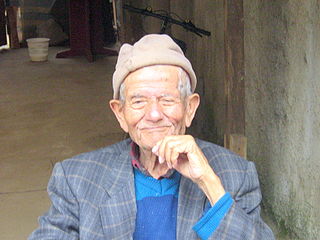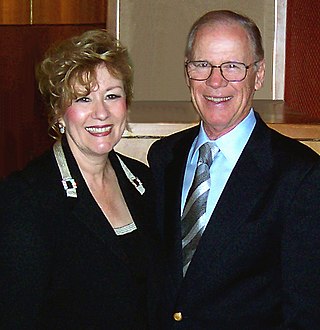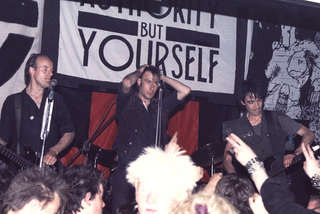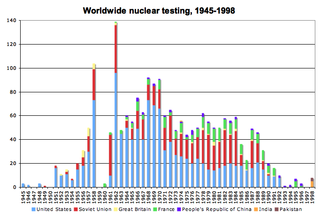Related Research Articles

Happiness is a positive and pleasant emotion, ranging from contentment to intense joy. Moments of happiness may be triggered by positive life experiences or thoughts, but sometimes it may arise from no obvious cause. The level of happiness for longer periods of time is more strongly correlated with levels of life satisfaction, subjective well-being, flourishing and eudaimonia. In common usage, the word happy can be an appraisal of those measures themselves or as a shorthand for a "source" of happiness. As with any emotion, the precise definition of happiness has been a perennial debate in philosophy.

Simple living refers to practices that promote simplicity in one's lifestyle. Common practices of simple living include reducing the number of possessions one owns, depending less on technology and services, and spending less money. In addition to such external changes, simple living also reflects a person's mindset and values. Simple living practices can be seen in history, religion, art, and economics.

"Life, Liberty and the pursuit of Happiness" is a well-known phrase from the United States Declaration of Independence. The phrase gives three examples of the unalienable rights which the Declaration says have been given to all humans by their Creator, and which governments are created to protect. Like the other principles in the Declaration of Independence, this phrase is not legally binding, but has been widely referenced and seen as an inspiration for the basis of government.

Helen Mary Caldicott is an Australian physician, author, and anti-nuclear advocate. She founded several associations dedicated to opposing the use of nuclear power, depleted uranium munitions, nuclear weapons, nuclear weapons proliferation, and military action in general.

Christopher Robert Hill is an American diplomat who is United States Ambassador to Serbia. Previously, he was George W. Ball Adjunct Professor at Columbia University in the City of New York, the Chief Advisor to the Chancellor for Global Engagement and Professor of the Practice in Diplomacy at the University of Denver. Prior to this position, he was the Dean of the Josef Korbel School of International Studies at the University, a position he held from September 2010 to December 2017.

Odyssey Number Five is the fourth studio album by the Australian rock band Powderfinger, produced by Nick DiDia and released on 4 September 2000 by Universal Music. It won the 2001 ARIA Music Award for Highest Selling Album, Best Group and Best Rock Album. The album was the band's shortest yet, focusing on social, political, and emotional issues that had appeared in prior works, especially Internationalist.

Esther Hicks is an American inspirational speaker, channeler, and author. She has co-written nine books with her late husband Jerry Hicks, presented numerous workshops on the law of attraction with Abraham-Hicks Publications and appeared in the original version of the 2006 film The Secret. The Hicks' books, including the series The Law of Attraction, are – according to Esther Hicks – "translated from a group of non-physical entities called Abraham". Hicks describes what she is doing as tapping into "infinite intelligence".

The anti-nuclear movement is a social movement that opposes various nuclear technologies. Some direct action groups, environmental movements, and professional organisations have identified themselves with the movement at the local, national, or international level. Major anti-nuclear groups include Campaign for Nuclear Disarmament, Friends of the Earth, Greenpeace, International Physicians for the Prevention of Nuclear War, Peace Action, Seneca Women's Encampment for a Future of Peace and Justice and the Nuclear Information and Resource Service. The initial objective of the movement was nuclear disarmament, though since the late 1960s opposition has included the use of nuclear power. Many anti-nuclear groups oppose both nuclear power and nuclear weapons. The formation of green parties in the 1970s and 1980s was often a direct result of anti-nuclear politics.

Anti-consumerism is a sociopolitical ideology that is opposed to consumerism, the continual buying and consuming of material possessions. Anti-consumerism is concerned with the private actions of business corporations in pursuit of financial and economic goals at the expense of the public welfare, especially in matters of environmental protection, social stratification, and ethics in the governing of a society. In politics, anti-consumerism overlaps with environmental activism, anti-globalization, and animal-rights activism; moreover, a conceptual variation of anti-consumerism is post-consumerism, living in a material way that transcends consumerism.

Crass were an English art collective and punk rock band formed in Epping, Essex in 1977, who promoted anarchism as a political ideology, a way of life, and a resistance movement. Crass popularised the anarcho-punk movement of the punk subculture, advocating direct action, animal rights, feminism, anti-fascism, and environmentalism. The band used and advocated a DIY ethic approach to its albums, sound collages, leaflets, and films.
The Pursuit of Happiness may refer to "Life, Liberty and the pursuit of Happiness", a phrase in the United States Declaration of Independence, as well as:
Horizontalidad is a social relationship that advocates the creation, development, and maintenance of social structures for the equitable distribution of management power. These structures and relationships function as a result of dynamic self-management, involving the continuity of participation and exchange between individuals to achieve the larger desired outcomes of the collective whole.
In 1984, Prime Minister David Lange banned nuclear-powered or nuclear-armed ships from using New Zealand ports or entering New Zealand waters. Under the New Zealand Nuclear Free Zone, Disarmament, and Arms Control Act 1987, territorial sea, land and airspace of New Zealand became nuclear-free zones. This has since remained a part of New Zealand's foreign policy.

According to the U.S. State Department, relations between New Zealand and the United States as of August 2011 are "the best they have been in decades." New Zealand is a major non-NATO ally of the United States.

The anti-nuclear movement in the United States consists of more than 80 anti-nuclear groups that oppose nuclear power, nuclear weapons, and/or uranium mining. These have included the Abalone Alliance, Clamshell Alliance, Committee for Nuclear Responsibility, Nevada Desert Experience, Nuclear Information and Resource Service, Physicians for Social Responsibility, Plowshares Movement, Women Strike for Peace, Nukewatch, and Women's International League for Peace and Freedom. Some fringe aspects of the anti-nuclear movement have delayed construction or halted commitments to build some new nuclear plants, and have pressured the Nuclear Regulatory Commission to enforce and strengthen the safety regulations for nuclear power plants. Most groups in the movement focus on nuclear weapons.

Nuclear weapons testing, uranium mining and export, and nuclear power have often been the subject of public debate in Australia, and the anti-nuclear movement in Australia has a long history. Its origins date back to the 1972–1973 debate over French nuclear testing in the Pacific and the 1976–1977 debate about uranium mining in Australia.

The application of nuclear technology, both as a source of energy and as an instrument of war, has been controversial.

Dark Circle is a 1982 American documentary film directed and produced by Judy Irving, Christopher Beaver and Ruth Landy that focuses on the connections between the nuclear weapons and the nuclear power industries, with a strong emphasis on the individual human and protracted U.S. environmental costs involved. A clear point made by the film is that while only two bombs were dropped on Japan, many hundreds were exploded in the United States.
Martha Ansara is a documentary filmmaker whose films on social issues have won international prizes and been screened in Australia, the UK, Europe and North America. Ansara was one of the first women in Australia to work as a cinematographer, is a full member of the Australian Cinematographers Society (ACS) and was inducted into the ACS Hall of Fame in 2015. Martha is a Life Member of the Australian Directors Guild and a founding member of Ozdox, the Australian Documentary Forum. She has also worked as a film lecturer and film writer and has been active in the trade union, women's and peace movements.

Peter Hardy was an Australian actor, theatre performer, and musician.
References
- ↑ David Stratton, The Avocado Plantation: Boom and Bust in the Australian Film Industry, Pan MacMillan, 1990 p223
- ↑ Anna Grieve, "Question and Ansara", Cinema Papers March 1988 p6-7
- ↑ "Interview with Margaret Ansara", Signet, 7 November 1998. Retrieved 17 November 2012